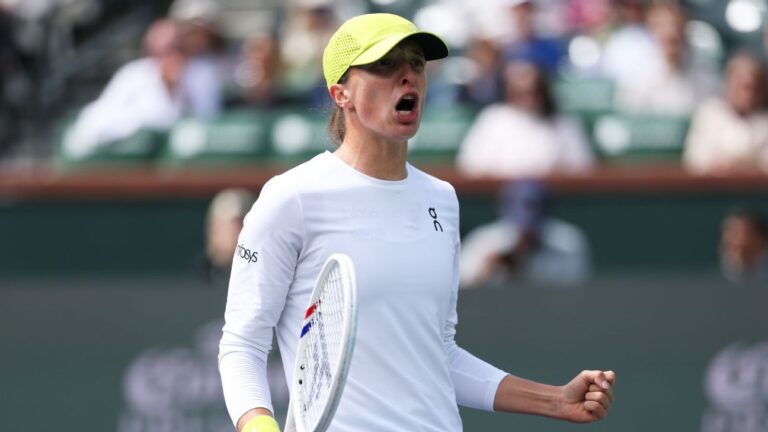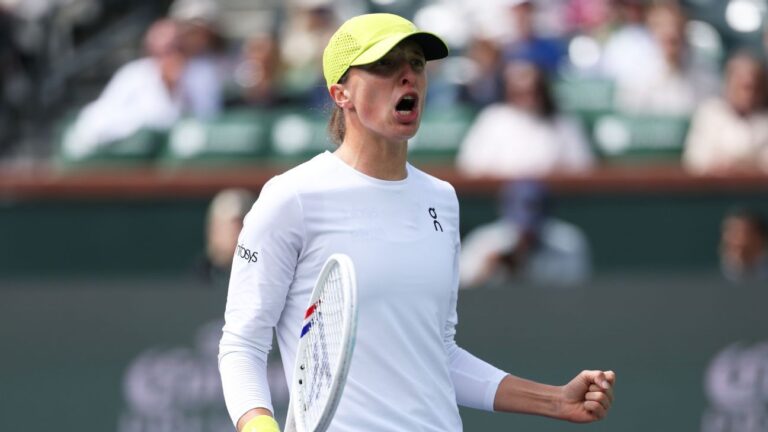Aug 29, 2024, 07:35 PM ET
Women’s world No. 1 Iga Swiatek on Thursday called for tennis’ governing bodies to provide players with more tools to combat online abuse after Caroline Garcia wrote about the hateful messages she has received on social media following recent losses.
Garcia offered examples of just a few of those derogatory messages Wednesday on X, noting in her post that there were “hundreds.” She pointed to “unhealthy betting” as one of the reasons players are targeted on social media.
The French Open partnered in 2022 with a company that uses artificial intelligence to filter players’ social media accounts, and the groups that run the US Open, Wimbledon, the women’s tour and the lower-level ITF Tour announced in December that they were starting a service to monitor for “abusive and threatening content” on X, Instagram, YouTube, Facebook and TikTok.
“It would be nice if we can do more as [Garcia] did and try to educate people,” Swiatek told reporters after her second-round win over Ena Shibahara. “Also maybe in the future, have some solutions such as using AI to make it safer for us. I feel like we can’t be on the internet and feel safe anymore. You have to really be careful on what you’re reading, who you’re following. I know that there are some tools that, for example, Roland Garros offered for us.
Editor’s Picks
2 Related
“This app that we can have on the phone, and it’s going to block the hateful messages. It’s also going to learn with you when you’re going to tag some messages as hateful. … It would be nice if we had more opportunities to use these kind of tools.”
No. 6 Jessica Pegula said she had done her best to avoid looking at comments on her personal social media but was still subject to online abuse through the account made for her skincare brand.
“There was this girl that does my social media for my company Ready 24, and she said, ‘You know, you’re getting a lot of really bad messages,'” Pegula told reporters. “I laughed because it’s so normal for me. I’m like, ‘Oh, no, don’t worry, it’s nothing.’ She was gravely concerned that I was getting death threats … It’s not normal, but it’s totally normal for us. It’s so bad that it’s come to that point.”
Men’s world No. 1 Jannik Sinner, who has been under scrutiny at the US Open over a doping case for which he was cleared of wrongdoing, said receiving hateful messages is part of being an athlete.
“I’m not so much on socials, especially in the last period,” Sinner told reporters after his win over Alex Michelsen. “I try to not look. I know that there are some negative messages, but it’s something you have to be careful about. Especially when you are younger because you care a lot about your reputation, but then at the end of the day, that’s why you have the close ones and they know you as a person and as an athlete.
“My advice is always to stick with them because they are very honest with you.”
Russian Karen Khachanov — who was beaten Tuesday by Britain’s Daniel Evans in a marathon 5:35 first-round match, the longest ever at the US Open — urged people to be respectful and not “strike a man when he is down.”
“I will be grateful for all the support that I get,” he added in a post on Instagram. “Let’s be kind to one another. Less hate and more love and the world will become a better place.”
The Associated Press and Reuters contributed to this report.







